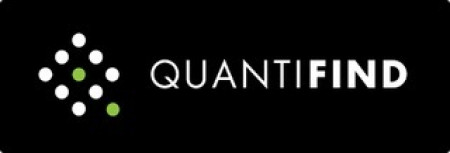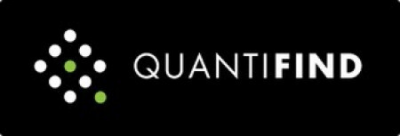Quantifind's Advanced Sanctions Software Protects Financial Institutions From High-Risk Entities During Russia-Ukraine War

PALO ALTO, Calif., April 11, 2022 (Newswire.com) - An analysis by Quantifind, developers of the Graphyte AI-powered financial crimes automation platform, revealed dozens of previously undetected network connections between investors and Russian oligarchs, and hundreds of connections to sanctioned Russian entities.
The study by Quantifind, which has worked with top-tier banks and Fortune 50 companies since 2009, screened tens of thousands of investors and automatically generated and risk-ranked more than 500,000 related parties. These new connections, representing significant potential risk to financial institutions, were not found by existing KYC and sanctions screening systems.
Since Russia's invasion of Ukraine, Western nations have imposed an array of sanctions in hopes of forcing an end to the war. Russia was already the second-most sanctioned country in the world behind Iran. After the attacks on Ukraine, however, the number of sanctions levied against Russia has more than doubled from 2,754 to 5,532. Even Switzerland, which stays historically neutral, has levied more than 500 sanctions against Russia.
Sanctions from the United States and Western allies have significantly impacted Russia's economy, with escalating import taxes in some nations and outright bans on buying Russian products. The country's currency, the rouble, is down 22% since the escalation began, and inflation in Russia has risen by 14%. These sanctions have impacted Russian export of oil and gas, sales of military goods and consumer items, and targeted Russian Oligarchs.
Financial institutions partnering with Russians during this conflict have emphasized managing risk but can no longer rely on traditional static list screening and name matching as things change rapidly. Enterprises are seeing significant gaps in current legacy sanction software, AML solutions, KYC monitoring, and RPA add-ons.
Identifying network risk beyond a single named entity is required, such as identifying directors on common boards with oligarchs or investors with linkage to oligarch facilitators. As sanctions escalate, they may expand to include known associates or anyone doing business with entities closely affiliated with high-risk Russian entities. As such, it is crucial for global enterprises to identify additional and anticipate sanction risk and how it may impact their portfolio.
"Utilizing proper screening and verification is a necessary tool in today's environment as the Russian-Ukrainian conflict moves forward. Quantifind's cloud-based solution incorporates global name rarity models, linguistic patterns, and additional features to reduce false positives on sanctions screenings by 80%," said Ari Tuchman, CEO of Quantifind. "This allows enterprises to protect their reputation while performing safe and responsible business practices."
With the Russian invasion of Ukraine, sanctions have come at a blistering pace, making data quickly outdated in legacy risk systems. Manual and automated rules applied to sanctioned entity names can't be curated quickly enough. Reactive approaches to sanction screening are falling painfully behind.
Enterprises need a new way to uncover deeply hidden assets to effectively identify and manage risk. Otherwise, they risk opening accounts, extending loans, and developing partnerships with entities, unaware of their connections to high-risk individuals.
Visit the following link to read the case study in full.
About Quantifind
Quantifind's Graphyte AI-powered financial crimes automation platform applies comprehensive data coverage, best-in-class risk assessment accuracy, and powerful investigation tools to deliver AML-KYC productivity gains of over 40%.
Watchlist Screening | Investigation | Adverse Media Screening | Credit Risk
Media Contact
Mike Albanese
mike.albanese@newswire.com
Source: Quantifind
